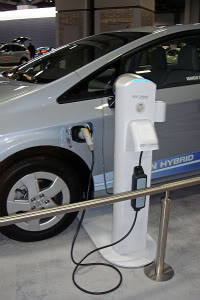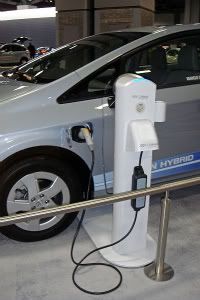Innovation Means Introducing New, Relevant Concepts to Your Customers
I had a talk just now with an old friend — an extremely senior business visionary who helped me put a few things into perspective about the innovations that are reshaping our world. Coming out of decades of work for Deloitte Consulting and other top names in strategy, she explained:
There’s the BUY-side, the supply chain, which has been quite important through the last few decades. A change in tax law, for example, can mean huge savings by completely re-constructing this part of the business. However, it’s not where the energy is today.
There’s the IN-side, the core business. Here are all the changes you’re making within the enterprise. Again, not where the world’s attention is aimed now.
And there’s the SELL-side. This, of course, was always important – but now it’s where the world is truly focused. (more…)




 I got a wake-up call this morning – literally, at 5 AM, the time for which I had set my alarm so as to be the guest on
I got a wake-up call this morning – literally, at 5 AM, the time for which I had set my alarm so as to be the guest on 


 This article is written in order for people to learn and understand more about the science, technology and environmental effects of the different lighting products available to consumers at present.
This article is written in order for people to learn and understand more about the science, technology and environmental effects of the different lighting products available to consumers at present.
 Systems can last for 40 or more years. By going solar, you can lock in your current and future energy costs in at today’s lower rates.
Systems can last for 40 or more years. By going solar, you can lock in your current and future energy costs in at today’s lower rates.![[The Vector] World Future Energy Summit January 17-20th, 2011](http://2greenenergy.com/wp-content/uploads/2011/01/Hilary-and-Dr-Sultan-ahmed-Al-Jaber-courtesy-Masdar-150x150.jpg)



 Retired engineer Lucas Jones writes:
Retired engineer Lucas Jones writes:
 Two pieces on sustainability for your consideration:
Two pieces on sustainability for your consideration: